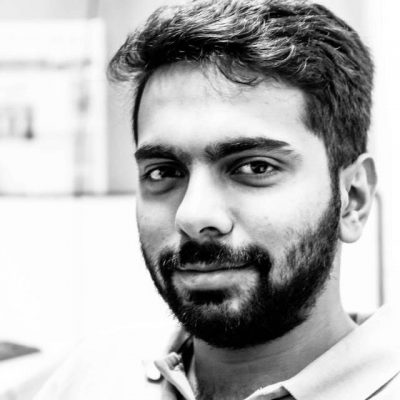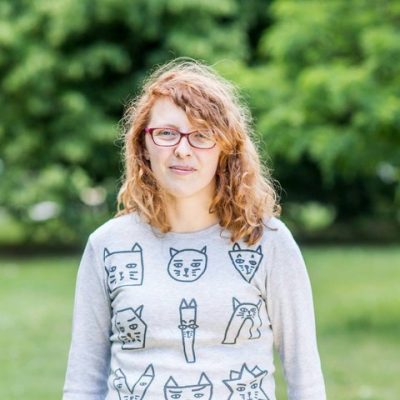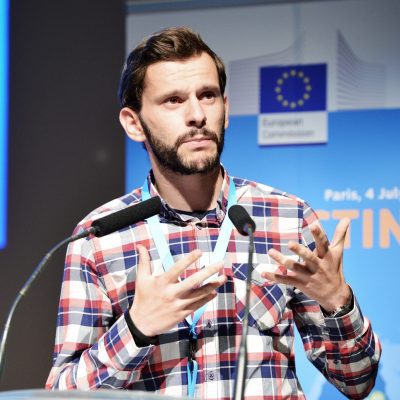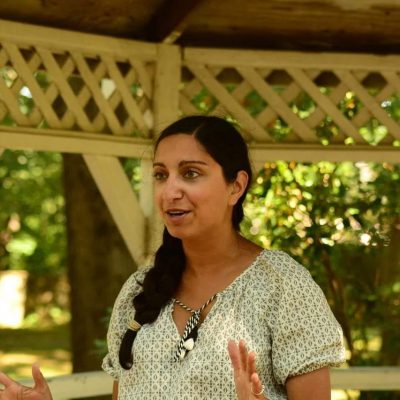Article
Saim Saeed grew up in Pakistan and was educated in India — which was unprecedented, given the hostility between the two countries. His experience straddling an international conflict — as someone whose grandparents migrated from India, as a Muslim, and later an atheist — compelled Saim to think about identity, and the power of belonging it can either give or take away. Later Saim lived in the U.S. and Europe, where his own understanding of self and identity was thrown into a sea of judgments that had been predetermined for him before he could utter a word.
On his way to Germany for his Humanity in Action Fellowship in Berlin, Saim recalls an interaction he had with a German visa officer:
“So you’re going to talk about Pakistani human rights issues in Germany?” | “No. I’m going to learn about German human rights issues.” | “What human rights issues? We don’t have any, anymore.”
In hindsight, his Humanity in Action experience started well before the program. Given the enormous role the visa officer’s play in countries like Saim’s, Saim realized that many people do not critically examine human rights in their own nation as they might in less wealthy, “less western” nations. Saim recalls wondering how the Fellowship would resonate with him given that he had no personal connection with German history. But soon he would learn that the Holocaust, communism, fascism and many other parts of the German experience, echoed politics playing out in Pakistan. Saim hopes that by learning about these issues happening around the globe we can work to prevent them from happening ever again, anywhere.
“We [Pakistanis] have our traumas, our genocides, our vilification of marginalized groups and our inability or unwillingness to criticize our past, just as [Germans] do.”
[The Fellowship] made me more empathetic, sharper, more proud, more sensitive — a better person. To get others to think about this stuff — and also to just get my thoughts on paper — I became a journalist, with specific interest in public policy.
Humanity in Action helped Saim understand those often uncomfortable, sometimes brutal interactions between cultures, between the oppressed and the oppressors, between the unbowed and the unforgiving. On his Fellowship, Saim remarks: “It made me more empathetic, sharper, more proud, more sensitive — a better person. To get others to think about this stuff — and also to just get my thoughts on paper — I became a journalist, with specific interest in public policy.”
Saim is an assistant technology editor at Politico. Previously, he worked for The Express Tribune, an English language daily in Karachi, Pakistan – his hometown – writing mostly about South Asian politics, security, and terrorism. He has been published in the New York Times, Foreign Affairs, Al Jazeera, The Diplomat, Haaretz and many publications in South Asia. He completed his undergraduate education at Bard College and received a Master’s degree from Oxford. Having worked for years on issues regarding identity, Saim now spends a substantial amount of time writing for Politico on climate policy. On this shift, Saim states,
“We can try to be more understanding of one another, but nature has no such empathy.”
Interested in reading Saim’s news coverage and op-eds? Find all his Politico articles here.
Updated September 2020
More from Saim Saeed
-
Saim Saeed's article about Cricket in Europe published by POLITICO
With the recent developments in Afghanistan, two of Saim Saeed's articles have been published by POLITICO.
-
Saim Saeed's articles published in POLITICO
With the recent developments in Afghanistan, two of Saim Saeed's articles have been published by POLITICO.
-
We thank the members of our Admissions Committee for the Landecker Democracy Fellowship
We thank the members of our Admissions Committee for the Landecker Democracy Fellowship 2020/21. From August 3 to September 28, 2020 members of the Admissions Committee read over 260 applications and interviewed more than 90 finalists.
-
Senior Fellow Saim Saeed publishes Article in Politico about Air and Rail Refund Rights Amid Mass Coronavirus Cancellations
Passengers and businesses have complained that some companies do not comply with EU air passenger legislation.
-
Humanity in Action announces the participants of its Forum on Right-Wing Movements
Humanity in Action is pleased to announce the participants in its Forum "Populism, Nationalism and Right-Wing Movements on the Rise – Societies in Transition," which will take place in Berlin in March 2020!
-
Slowly, Belgium Reckons with #MeToo
-
12 Senior Fellows on #MeToo's International Impact
Twelve Senior Fellows reflect on how the #MeToo Movement has gained momentum across European and US industries and communities.
-
Thank you to our 2015 US Review and Admissions Committees
Humanity in Action received 689 applications for our Fellowships in Europe and Atlanta this year and 421 applications for the Diplomacy and Diversity Fellowship.
-
Thank you to our 2016 US Review and Admissions Committees
Humanity in Action received 513 applications for our Fellowships in Europe and Atlanta this year, as well as 165 applications for the Diplomacy and Diversity Fellowship.
-
Shouting in the Mirror
In this New York Times Op-Ed, Senior Fellow Saim Saeed questions the true divides between Pakistanis and Indians as the Wagah border crossing in India.




